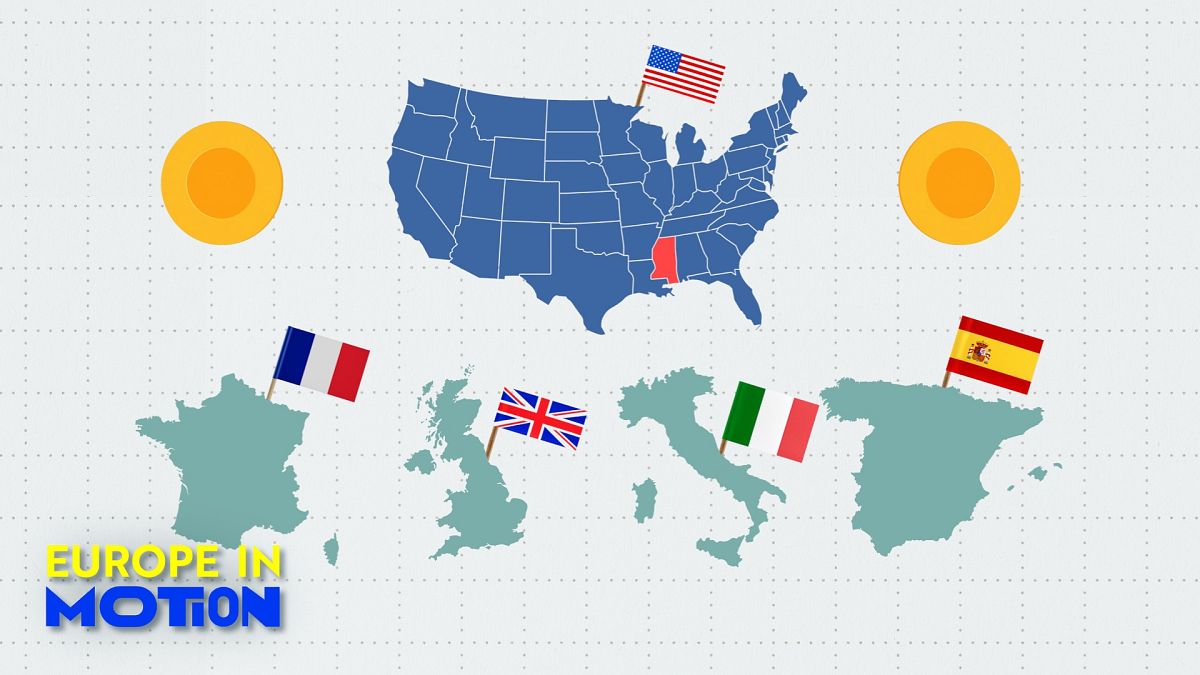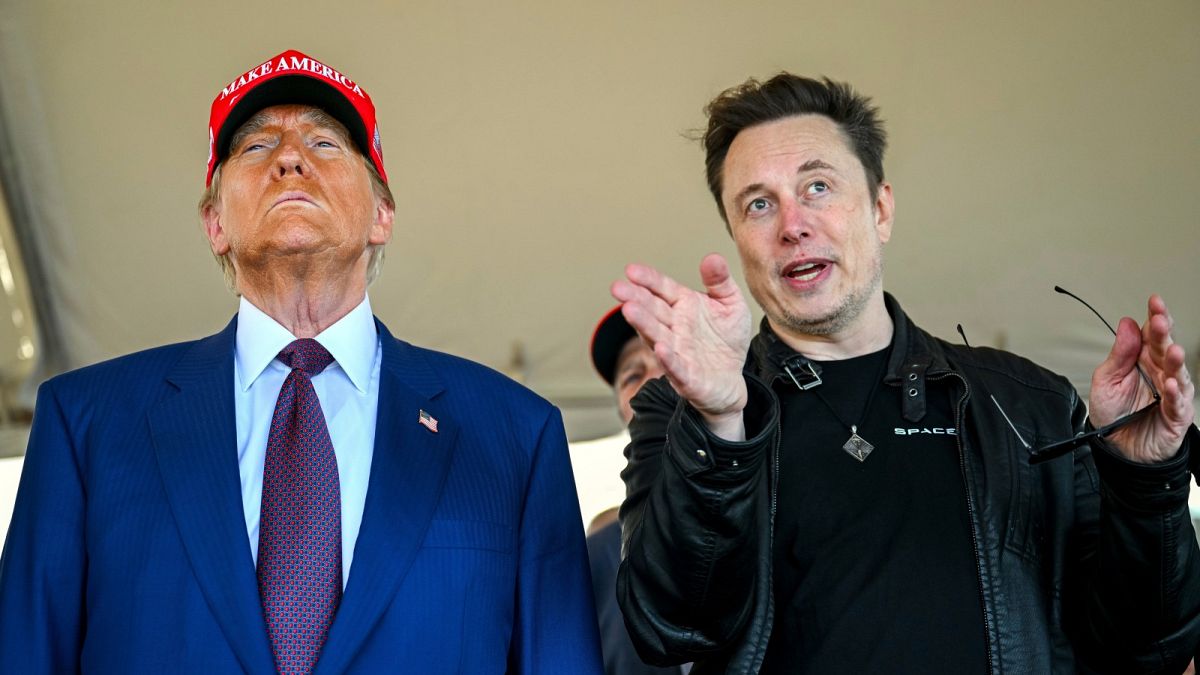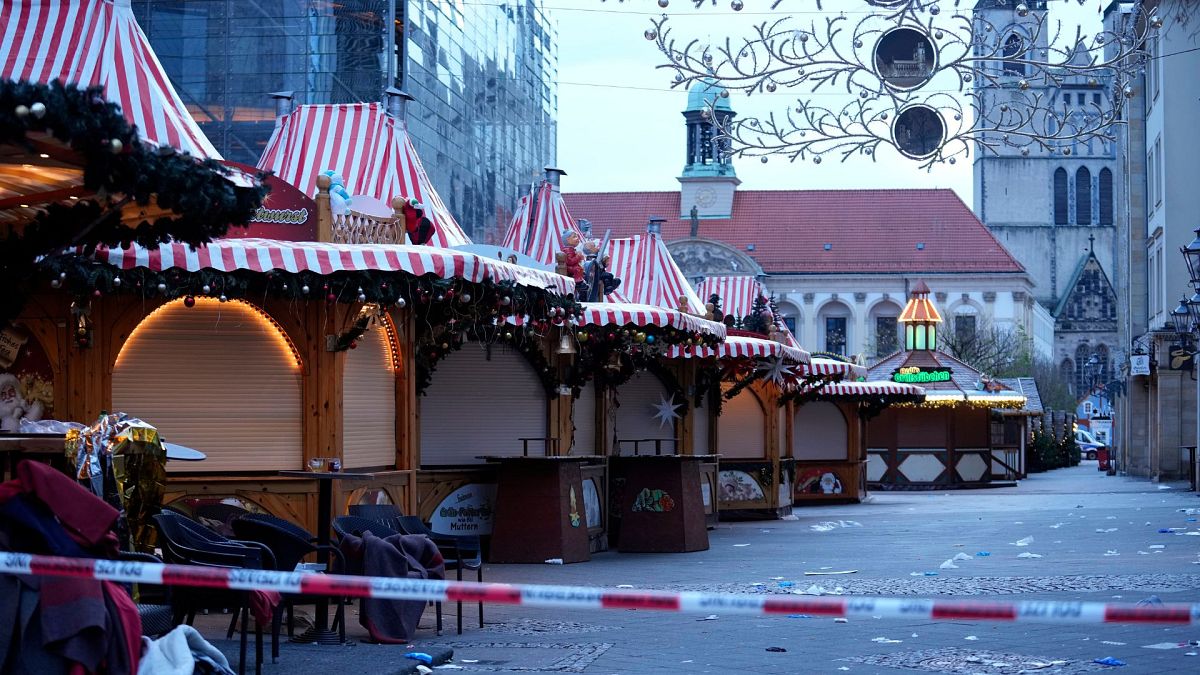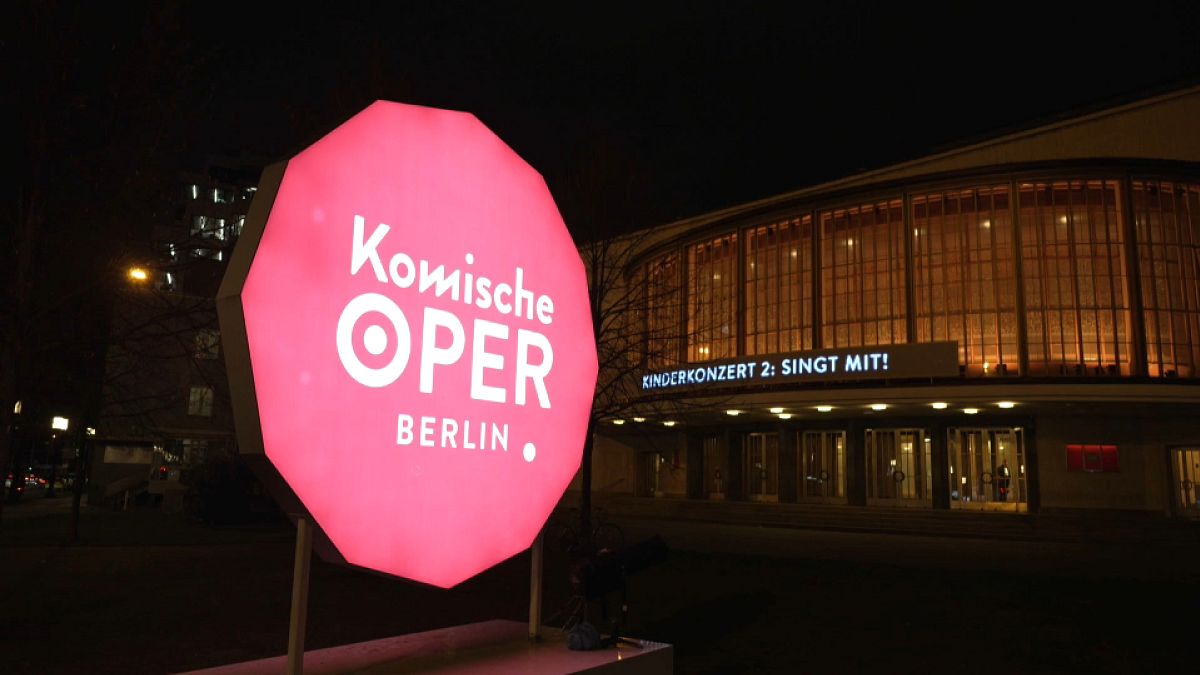Willkommenskultur: Has Germany turned its back on welcoming migrants?
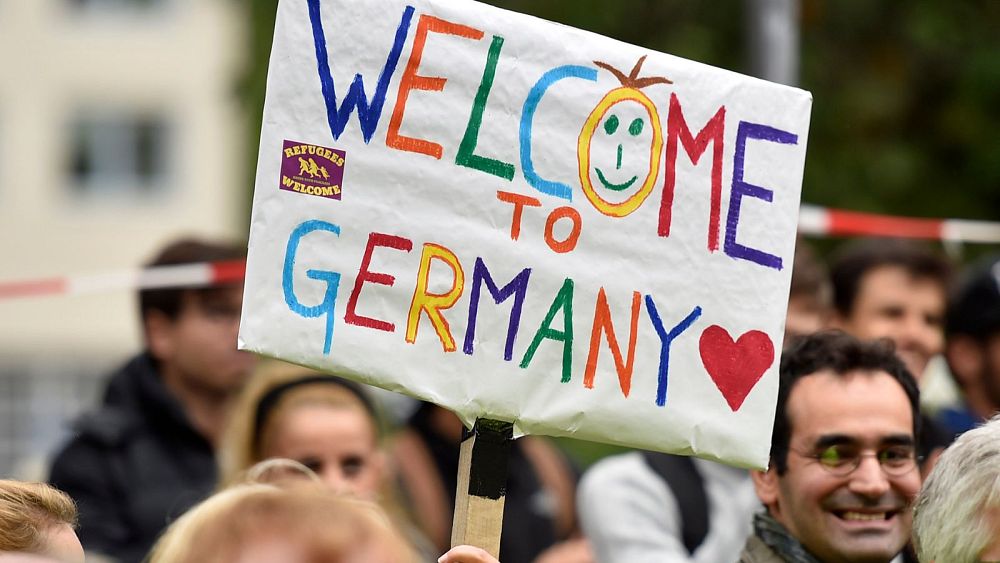
After two electoral defeats for his coalition, Germany’s Chancellor Olaf Scholz is now taking a tougher stance on migration, trying to ramp up efforts to deport those illegally in the country.
Amid the widespread panic shared by European countries during the migrant crisis of 2015-2016, Germany represented a beacon of light and optimism under the leadership of then-chancellor Angela Merkel, who famously opened her country up to huge numbers of migrants.
Under Merkel’s leadership and her “welcome culture” policy, the country took in more than 1.2 million refugees and asylum seekers between 2015 and 2016.
But as levels of illegal migration in Europe are once again on the rise, Germany now finds itself in a very different position, forced to turn its back on the “welcome culture” – or “Willkommenskultur” – which it once prided itself on.
“We are limiting irregular migration to Germany. Too many people are coming,” Chancellor Olaf Scholz said in a recent interview with newspaper Der Spiegel. “We have to deport people more often and faster.”
Germany needs to ramp up the expulsions of migrants who are not allowed to stay in the country, Scholz said. Only days later, the German Cabinet granted its approval to a legislative proposal aiming at streamlining the deportation process of unsuccessful asylum-seekers.
It’s a huge change for Germany and Scholz, who might have been expected to continue the legacy of his predecessor.
“There’s a notable change in rhetoric and policy with the clear objective to bring migration numbers down,” Michael Bröning, a political scientist and a member of the SPD Basic Value Commission, told Euronews.
“Suggested steps include facilitating deportations, more severe sanctions for human traffickers, the reinstallation of temporary border controls, further bilateral agreements with countries of origin and an extension of the list of countries deemed safe. In sum, this is a drastic shift in policy that signals an end to Germany’s unique ‘welcome culture’ as witnessed in 2015,” he added.
A stark change in policy after electoral woes
During a three-day visit to Nigeria earlier this week, Scholz asked the African country’s President Bola Tinubu for help tackling soaring migration, suggesting a partnership somewhat similar to the one that Italy’s Prime Minister Giorgia Meloni struck with Tunisia earlier this year.
The idea is to expand migration centres in Nigeria, where those deported from Germany could find shelter, health care and job opportunities.
The initiative is part of the increasingly tough approach Scholz and his government are showing towards illegal migration after his three-party coalition performed badly in two regional elections earlier this month. Both state races were won by mainstream conservatives, while the far-right made significant gains.
Bröning said that “it’s impossible to say if this change will directly translate into greater support for the government” in future elections.
“But it is important to realise that the German public does want the government to act,” he continued. “Furthermore, it is important to see that the shift in policy does not happen in a vacuum but rather against the backdrop of a growing challenge from Germany’s far right.”
In recent months, the AfD has surged in the polls and scored significant electoral successes in Bavaria and Hesse.
“I think this development is not untypical of trends one can witness in other left and/or social democratic parties, which have for years been facing a dilemma regarding how to respond to the challenges from the populist radical right,” Dr Kurt Richard Luther, Professor Emeritus of Comparative Politics at Keele University in the UK, told Euronews.
“While the rise of the AfD is fuelled by a wide range of grievances – some imagined and some real, concern about what is seen as uncontrolled immigration has long been a main driving force of right-wing populism,” said Bröning.
Scholz is now under significant pressure to bring down the rising numbers of asylum seekers in the country, as dissatisfaction with the government’s handling of the refugee situation is growing.
A recent ARD DeutschlandTrend survey found that 44% of Germans currently consider illegal immigration the most important political problem in Germany that politicians should prioritise.
“Addressing the issue is clearly the order of the day,” said Bröning.
“The challenge will be to manage the crisis without jeopardising either the stability of the coalition government or intra-party cohesion. Clearly, not every social democrat or German green voter is happy with the proposed changes. so I assume it’s fair to say that we are at the beginning of a debate, not at the end of it.”
Has the way Germans feel about migrants changed?
While many countries across Europe were tightening border control back in 2015, it was common to see cheering crowds of Germans greeting thousands of migrants arriving in the country after a long trek across the Middle East and Europe.
What happened to that enthusiasm for Germany’s newcomers?
Despite what Scholz’s shift in policy would suggest, “many Germans are still in favour of welcoming people in need and there is widespread support for accepting humanitarian responsibility – not denying it,” Bröning said.
“However, numbers have had an effect and the mood from 2015 has drastically changed,” he added.
Today, there’s widespread conviction among the German public that numbers must come down “and reactions to the current escalation in the Middle East have come to play an important – and unexpected – part in this transformation of the debate,” Bröning said.
“Pro-Palestinian rallies, a wave of antisemitic incidents, and the celebration of the Hamas attack in some high immigration neighbourhoods have been stark reminders that not all is well with regards to migration and integration. In many ways, this has opened up the discourse for a more nuanced discussion.”
Source: Euro News


